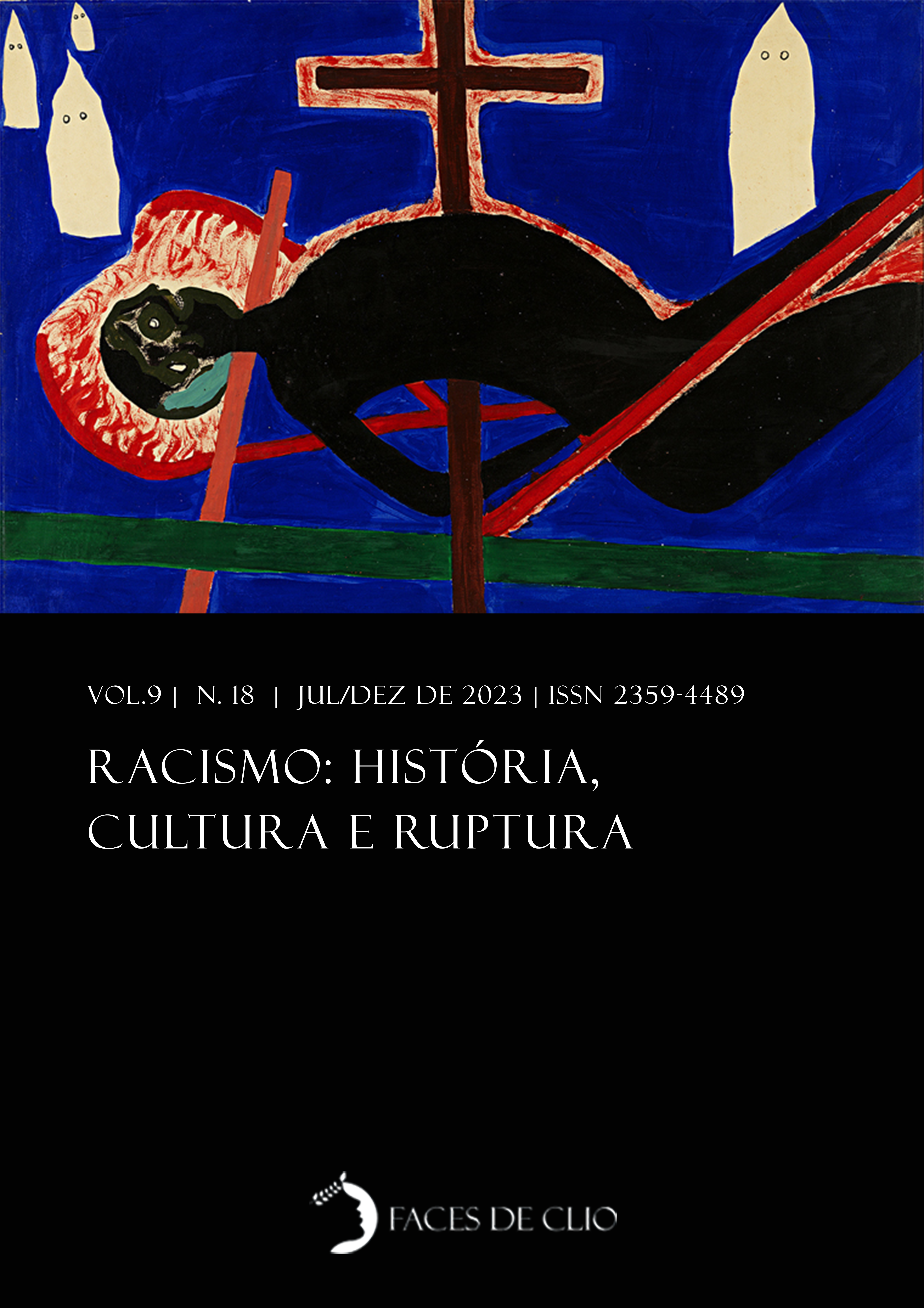Decolonialidades e Epistemologia
um olhar para Educação em Ciências e Saúde
DOI:
https://doi.org/10.34019/2359-4489.2023.v9.41339Keywords:
Ciências; Decolonialidades; Educação; Epistemologias; Saúde.Abstract
The emergence of a new speech space becomes admissible to the degree to which the colonial allocution itself is put in check, becoming the center of the analysis. With this, the decolonial turn is, in fact, a theoretical, ethical and political movement, from the moment it discusses the aspirations of the objectivity of scientific knowledge in health. To this end, researchers and activists look for actions and ways of thinking that are intrinsic to their own cultures and that loom large in the face of an order that, by globalizing, ends up mute those who are seen as included within an “inferior” culture, be it whether ideological, economic or epistemic. Taking a look at science and health education, here is the opportunity to bring to light a debate about the different forms of coloniality (of being, knowledge and power) that still continue within contemporary society. The literature highlights the issue of contemporaneity as a type of invention of the colonial procedure and how much the values surrounded by this paradigm intervene in the way of seeing and acting in the world, notably in the field of science and health. Therefore, this present study aimed to conduct a literature review on the influence of decolonial pedagogies in the field of science and health education. Therefore, this review sought to critically assess and summarize the relevant questions available on the investigated subject. It was concluded that the literature, in large part, discusses ethnocentric universalism, theoretical Eurocentrism, methodological nationalism, epistemological positivism and scientific neoliberalism that are present at the base of social sciences. With this, greater questions and alternative thoughts for decolonization in science and health, especially within the field of education, become necessary.
Downloads
References
BRANDÃO, C. R. O que é educação popular? São Paulo: Brasiliense, 1984
BRASIL. Presidência da República. Lei nº 10.639, de 9 de janeiro de 2003.
Altera a Lei no 9.394, de 20 de dezembro de 1996, que estabelece as diretrizes e bases da educação nacional, para incluir no currículo oficial da Rede de Ensino a obrigatoriedade da temática "História e Cultura Afro-Brasileira", e dá outras providências. Disponível em: <http://www.planalto.gov.br/ccivil_03/leis/2003/l10.639.htm>. Acessado em 20 de janeiro de 2021.
CAPRA, F. O ponto de mutação: a ciência, a sociedade e a cultura emergente. S. Paulo: Cultriz, 2007.
FREIRE, P. Ética da libertação. Na idade da globalização e da exclusão. 2ª ed. Petrópolis: Vozes, 2002.
HISSA, C. E. Fronteiras entre ciência e saberes locais: arquiteturas do pensamento utópico. In: IX Colóquio Internacional de Geocrítica: los problemas del mundo actual. Soluciones y alternativas desde la geografía y las ciencias sociales. Porto Alegre – Universidade Federal do Rio Grande do Sul, 2007.
LANDER, E. Ciências sociais: saberes coloniais e eurocêntricos. 1ª ed. Buenos Aires: Consejo Latinoamericano de Ciências Sociales – CLACSO, 2005.
MALDONADO-TORRES, N. Transdisciplinaridade e decolonialidade. Revista Sociedade e Estado, v. 31, nº 01, 2016.
MATOS, O. Discretas esperanças: Reflexões filosóficas sobre o Mundo contemporâneo. São Paulo: Editora Alexandria, 2006.
MIGNOLO, W. La opción decolonial: desprendimiento y apertura. Um manifiesto y un caso. Tabula Rasa, nº 08, 2008.
MORIN, E. Introdução ao Pensamento Complexo. Lisboa: Instituto Piaget, 1990
NGOENHA, S. Das Independências às Liberdades. Maputo: Paulinas, 2014.
PENNA, C. P. F. Pensamento decolonial: um olhar pedagógico sobre a teoria pós-colonial latino-americana. Revista de Estudos e Pesquisas sobre as Américas, v. 08, nº 02, 2014.
QUIJANO, A. Colonialidade do poder, Eurocentrismo e América Latina. Buenos Aires: Conselho Latino-Americano de Ciências Sociais, 2005.
SALCI, M. A. Educação em saúde e suas perspectivas teóricas: algumas reflexões. Texto e Contexto Revista de Enfermagem, Florianópolis, v. 22, nº 01, 2013.
SANTOS, B de S; MENESES, M. P. (Orgs.) Epistemologias do Sul. São Paulo; Editora Cortez, 2010.
SILVA, T. T da. Documentos de identidade: uma introdução às teorias do currículo. Belo Horizonte: Autêntica, 2013.
SOUSA, E. (org.). Psicanálise e colonização. Porto Alegre: Artes e Ofícios, 1999.
STOTZ, E. N. Enfoques sobre educação e saúde (s.d.). (Texto impresso), 2013.
Downloads
Published
How to Cite
Issue
Section
License
Copyright (c) 2023 Gabriella Mendes

This work is licensed under a Creative Commons Attribution 4.0 International License.


